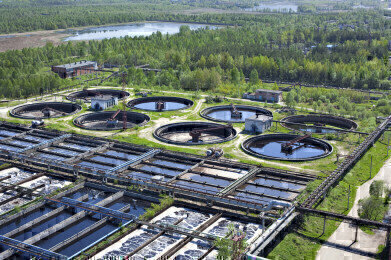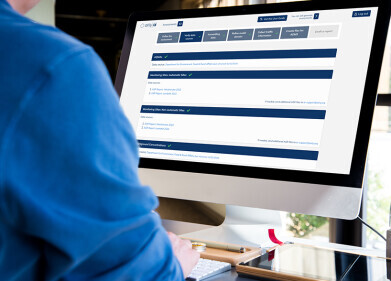Air Monitoring
Odour Monitoring Technology Comes to UK
Feb 09 2012
The science of smell is set to enhance air quality in the UK, thanks to the development of a pioneering ‘electronic nose’ for industrial odour monitoring.
Available in the UK for the first time, the technology can be used to help improve the control of odours associated with industries such as waste storage and recovery, sewage treatment, composting, chemicals and food production. By sensing odours and raising an alert before they cause human discomfort, the equipment can trigger activity to reduce nuisance odours at an early stage.
Distributed by air quality and emissions monitoring specialist Enviro Technology, the RQ Box electronic nose was developed by French company Alpha MOS – a world leader in human sense digitisation systems. It mimics human olfaction to detect levels of odour and pollutant gases in the air.
It has traditionally been difficult to ‘measure’ odours, but with the RQ Box, it is possible to create an objective profile of odour levels. This enables better policing and management of odour pollution, for authorities and organisations responsible for the odours alike.
Designed to monitor one or more industrial sites, the technology generates real-time information for efficient management of odour and chemical pollution. It provides 24/7 measurement of odour in ‘odour units’ (EN 13725 and ASTM E679) and of pollutant gases in ppm (H2S, NH3, mercaptans, VOCs). This information can be presented via 3D maps of dispersion plumes showing concentration levels.
Analysis of this data can form a vital part of strategies to combat odour pollution. And the RQ Box itself can stimulate tactical responses, from activation of warning alarms and air treatment facilities or adjusting the use of odour-neutralising additives.
For instance, there are cases where landfill sites have generated unacceptable levels of odour at periodic intervals due to prevailing meteorological conditions. Using the RQ Box helps to pinpoint conditions that lead to these problems, prompting timely remedial action – such as operating a spray system to neutralise odours.
The benefits of enhancing measurement – and therefore management – of odour pollution are manifold. Building a better understanding of the factors that lead to odour problems enables processes to be optimised to reduce the risk of nuisance odours. This facilitates intelligence-led decision making and a ‘continuous improvement’ approach to odour management. It can also lead to more tailored and cost-effective use of odour control facilities.
Potential fines for odour pollution can be significant. Composting firm County Mulch of Bury St Edmunds was ordered to pay around £33,000 in fines and costs* in 2011 following a series of complaints to the Environment Agency. Proactive use of the RQ Box could help businesses meet guidelines for odour control, underpinning better relationships with nearby residents and authorities.
Duncan Mounsor, Sales and Marketing Director at Enviro Technology, explains: “For some industries, odours are a normal by-product of everyday activity. But there is a world of difference between an ‘acceptable’ level of odour and what is clearly is an unacceptable nuisance. It is often the case that responsible businesses want to take more control of the odours they produce and build better relationships with their neighbouring residents. Embracing this technology is a good step towards achieving both of these goals.”
Digital Edition
IET 34.2 March 2024
April 2024
Gas Detection - Biogas batch fermentation system for laboratory use with automatic gas analysis in real time Water/Wastewater - Upcycling sensors for sustainable nature management - Prist...
View all digital editions
Events
Apr 30 2024 Melbourne, Australia
Apr 30 2024 Birmingham, UK
May 03 2024 Seoul, South Korea
May 05 2024 Seville, Spain
May 06 2024 Minneapolis, MN, USA


















